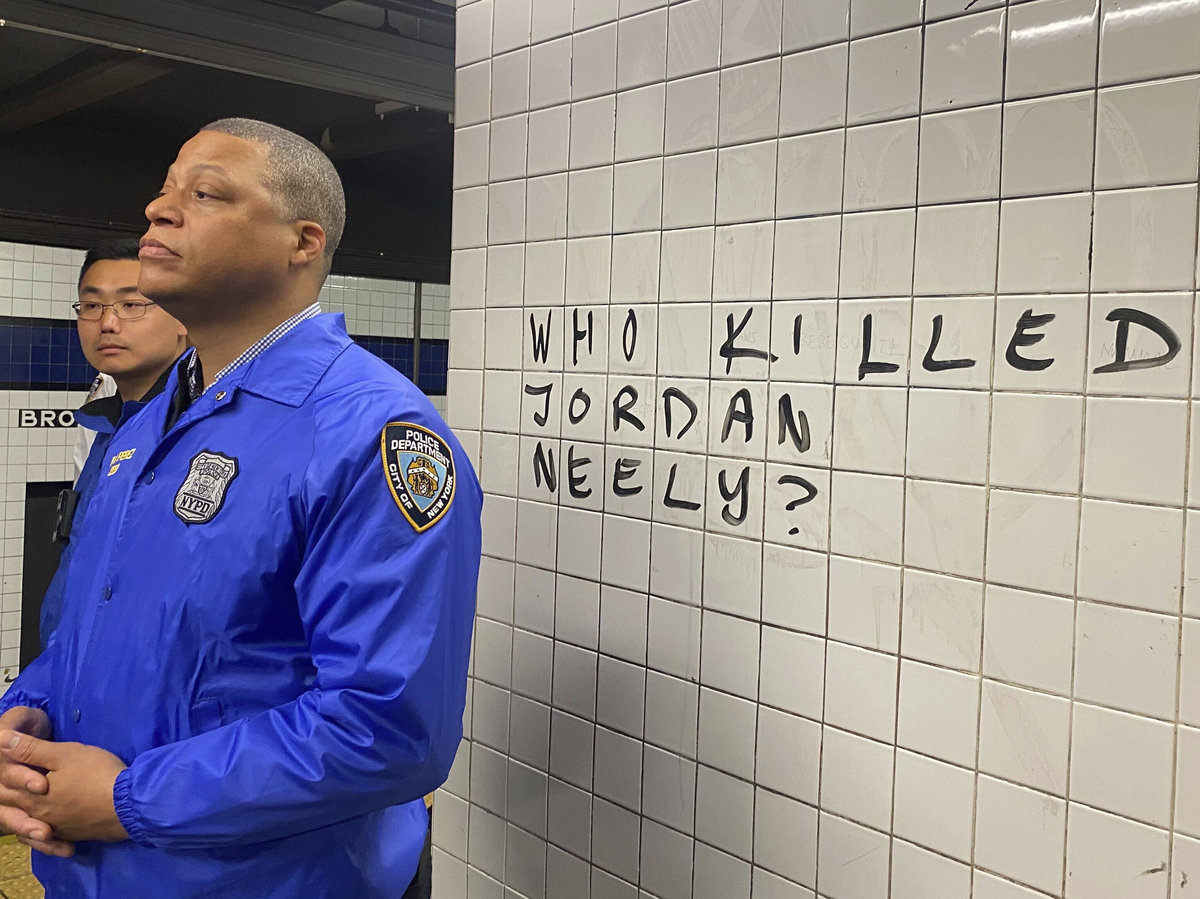
Police officers watch as protesters gather in the Broadway-Lafayette subway station to protest the death of Jordan Neely, Wednesday, May 3, 2023 in New York. Four people were arrested, police said. (AP Photo/Jake Offenhartz) Jake Offenhartz/AP hide caption

Police officers watch as protesters gather in the Broadway-Lafayette subway station to protest the death of Jordan Neely, Wednesday, May 3, 2023 in New York. Four people were arrested, police said. (AP Photo/Jake Offenhartz)
Jake Offenhartz/APOn Wednesday, after a week of demonstrations, New York City mayor Eric Adams made some of his most forceful comments about the death of Jordan Neely – a homeless Black man who died on a subway train last week when another passenger - Daniel Penny, who's white - held him in a chokehold.
While Mayor Adams said that Neely should not have died, he did not call for Penny to be arrested and charged with Neely's death.
Jordan Neely's death raises difficult questions – about race, class, justice, and society's responsibility to care for those in need.
NPR's Ailsa Chang speaks with Milton Perez, head of the Homelessness Union of VOCAL-New York, on how New York is succeeding and failing at providing services for people who are living on the streets.
This episode was produced by Marc Rivers, with engineering by Carleigh Strange. It was edited by Jeanette Woods. Our executive producer is Sami Yenigun.

 Live Radio
Live Radio